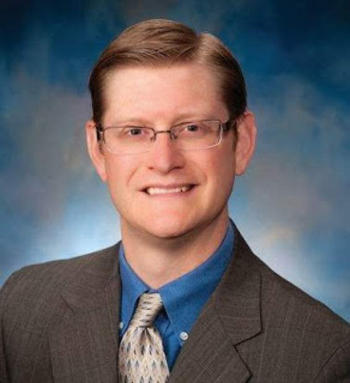Grantee Spotlight: Kurt Richard Weiss, M.D. - From Osteosarcoma Survivor to Osteosarcoma Researcher
, by CRCHD Staff
Kurt Richard Weiss, M.D., was only 15 years old when he was diagnosed with metastatic osteosarcoma of the right tibia after complaining of leg pain at football practice. His leg was eventually amputated after failed bone grafts and 25 surgeries. Despite chemotherapy and surgical removal of the metastatic cancer from his lungs, Weiss’ prognosis appeared dismal when surgeons found cancer in his lungs a second time. “It was as bad as it gets,” says Weiss. He vividly remembers receiving last rites by a Catholic priest at MD Anderson Cancer Center.
Fortunately, Eugenie Kleinerman, M.D. had just pioneered a novel treatment in her laboratory at MD Anderson. She had developed the immunotherapy agent, MEPACT (mifamurtide), to destroy drug-resistant bone tumor cells that had spread to the lungs in children. Weiss was Kleinerman’s 18th patient in the Phase II clinical trial of MEPACT and miraculously recovered. Kleinerman’s technique was expanded to a national Phase III trial, sponsored by the Children’s Oncology Group. The drug resulted in the first improvement in long-term survival of children with osteosarcoma in more than 20 years.
Fast forward to the present and the 40-year-old Weiss now works at the University of Pittsburgh School of Medicine as an assistant professor of orthopedic surgery. He is also an NCI/CRCHD K08 recipient and CURE scholar, focusing on identifying the factors and mechanisms related to osteosarcoma cell metastasis.
Osteosarcoma is a highly aggressive bone tumor that develops most commonly in the distal femur, proximal tibia, or proximal humerus of teenagers. The cause of this uncommon cancer is not known. At least one gene has been linked to an increased risk of developing osteosarcoma. This gene is also associated with familial retinoblastoma, a cancer of the eye that occurs in children. Each year, approximately 800 new cases of osteosarcoma are diagnosed in the U.S. About half of these are in children and teens.
Scientists still do not understand the cell biology behind this disease nor how the cancer travels from the bone of origin through the blood, avoiding the immune system, causing much damage to the lungs. “My current goal is to figure out the difficult journey that these cancer cells make from the tumor into the lungs,” said Weiss.
Weiss and his clinical partners have initiated the Musculoskeletal Oncology Tumor Registry and Tissue Bank (MOTOR). Patients’ clinical data are regularly gathered and correlated with the biological activity of their tumor cells. Weiss has already developed approximately 45 novel cell lines from patients with various sarcoma histologic subtypes. The ever-expanding collection is an invaluable scientific resource that will allow Weiss to uncover common themes in the basic biology of sarcoma metastasis, and enable him to test novel, targeted anti-metastatic treatments.
Weiss has been involved in molecular and cell biology research since 1994, and oncology research since 1999. He has worked with sarcoma research experts at the MD Anderson Cancer Center, NCI, and the Universities of Toronto and Pittsburgh. Eventually, Weiss joined Mark Goodman, his treating doctor, in his practice at the University of Pittsburgh Medical Center—one of only a handful of surgeons who specialize in sarcoma. Weiss is unique in that he is the only osteosarcoma survivor who routinely does osteosarcoma surgery with his treating doctor.
Weiss earned his bachelor’s degree in history at the University of Notre Dame, Indiana, in 1997. In 1999, Weiss spent eight weeks in Kleinerman’s laboratory with the very research team that saved his life, through MD Anderson’s Summer Research Program for Medical Students. “It was an emotional experience but very exhilarating,” he says. He went on to earn his medical degree from Jefferson Medical College in Philadelphia in 2003. Between his second and third year of medical school, he attended the Howard Hughes Medical Institute/NIH Research Scholars Program and conducted research on metastatic bone tumors, an experience he describes as having a huge impact on his career.
The author of more than 20 peer-reviewed scientific articles, 26 published abstracts, and six book chapters Weiss has recently been selected to receive the 2014 University of Pittsburgh Cancer Institute Junior Scholar Award in Clinical Cancer Research. He is also a founding member of, and investigator within, the Musculoskeletal Oncology Research Initiative, as well as a founding member of Pittsburgh Cure Sarcoma, a grassroots group of sarcoma patients, doctors, and supporters that raises awareness and research dollars in the southwestern Pennsylvania area.
